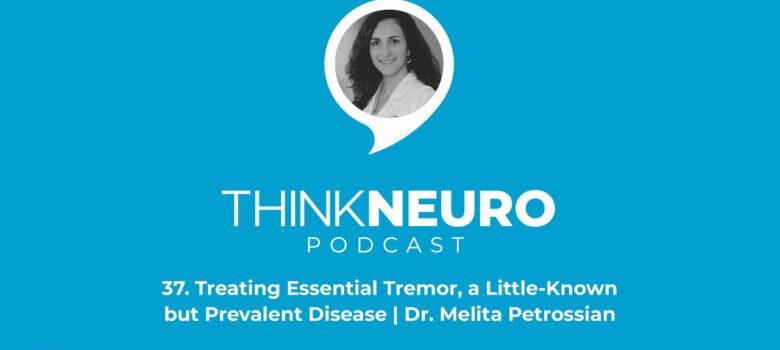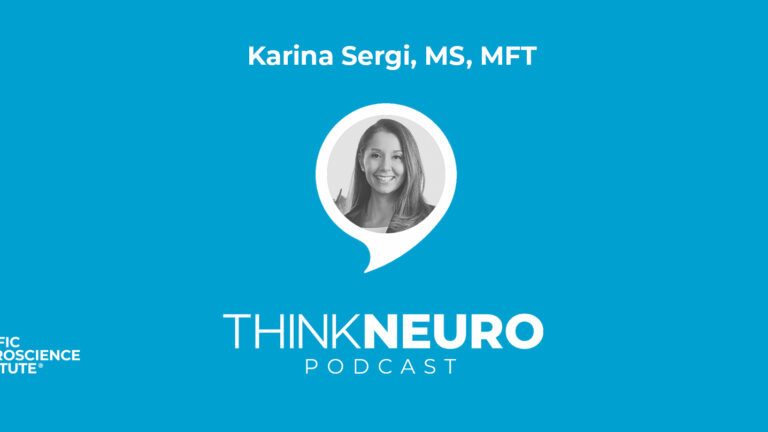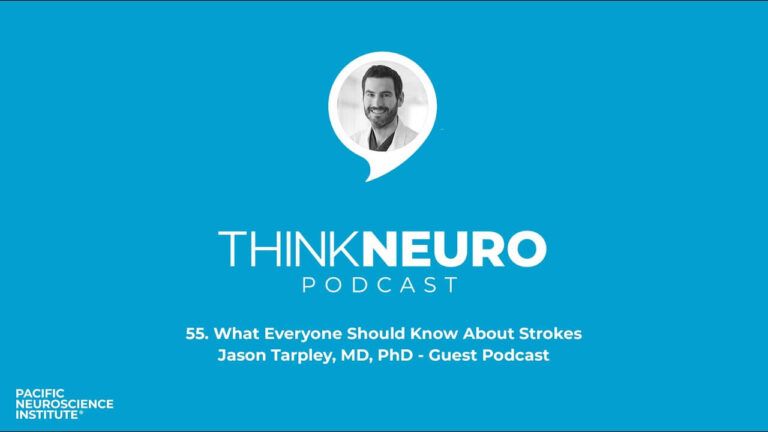

Treating Essential Tremor, a Little-Known but Prevalent Disease | Dr. Melita Petrossian
by Anthony Effinger
The Think Neuro podcast from Pacific Neuroscience Institute takes you into the clinic, operating room and laboratory with doctors and surgeons who are tackling the most challenging brain diseases and disorders. Host: Anthony Effinger
Subscribe: Google Podcasts | Apple Podcasts | Spotify | Simplecast
Watch: YouTube
Episode 37: Show Notes
Dr. Melita Petrossian is a neurologist who specializes in movement disorders. When most people hear that term, they think of Parkinson’s disease. But Dr. Petrossian sees a number of patients with what’s known as essential tremor, a condition that’s often mistaken for Parkinson’s.
It affects eight million Americans, far more than suffer from Parkinson’s. The brain has “tremor generators” that help us move. The tremor is natural, but the cerebellum smooths it out, like the steady cam features on our phones, so we don’t shake.
Babies often jerk their limbs because the cerebellum hasn’t mastered the task. In cases of essential tremor, the cerebellum loses the ability to do that work. Listen to this episode to find out why the condition is called “essential” and how Dr. Petrossian helps alleviate the symptoms for people who have it.
About Dr. Petrossian

Dr. Melita Petrossian is a fellowship-trained neurologist and movement disorders specialist and is the Director of the Pacific Movement Disorders Center located at Providence Saint John’s Health Center and Providence Little Company of Mary Medical Center Torrance.
Dr. Petrossian’s clinical interests and expertise are in movement disorders such as Parkinson’s disease (PD), tremor including essential tremor, dystonia, gait disorders, ataxia, myoclonus, blepharospasm, hemifacial spasm, Meige syndrome, spasticity, tics and Tourette’s syndrome.
Check Out More Think Neuro Podcast Episodes
About the Author

Anthony Effinger
Think Neuro's host is Anthony Effinger, an award-winning journalist who is fascinated with neuroscience and the workings of the brain. Anthony spent 24 years at Bloomberg News, where he covered all aspects of finance, with forays into science and health. In 2006, the Association of Health Care Journalists awarded him first prize for Playing the Odds, an in-depth piece on the changing strategies used to treat prostate cancer. These days, he is a staff writer at Willamette Week, a Pulitzer Prize-winning newspaper in Portland, Oregon, where he lives with his wife and two children.
Last updated: October 4th, 2023


